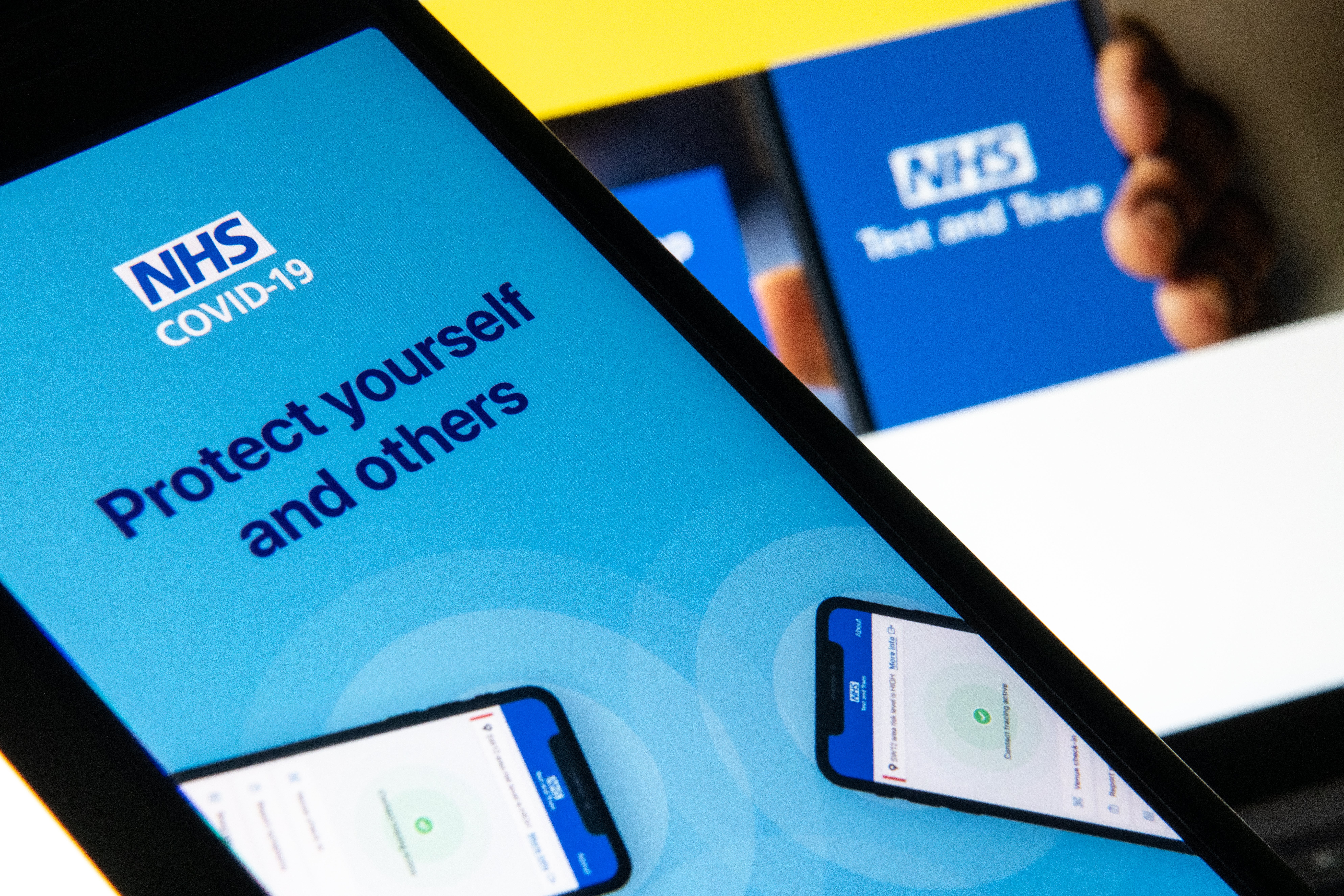One in three adults to download long-awaited NHS coronavirus app
Take up of 15 per cent expected to affect ‘R’ rate

Your support helps us to tell the story
From reproductive rights to climate change to Big Tech, The Independent is on the ground when the story is developing. Whether it's investigating the financials of Elon Musk's pro-Trump PAC or producing our latest documentary, 'The A Word', which shines a light on the American women fighting for reproductive rights, we know how important it is to parse out the facts from the messaging.
At such a critical moment in US history, we need reporters on the ground. Your donation allows us to keep sending journalists to speak to both sides of the story.
The Independent is trusted by Americans across the entire political spectrum. And unlike many other quality news outlets, we choose not to lock Americans out of our reporting and analysis with paywalls. We believe quality journalism should be available to everyone, paid for by those who can afford it.
Your support makes all the difference.Less than one in three adults in England and Wales will download the now available NHS coronavirus app, international comparisons suggest.
But officials believe a take-up rate of less than half of that could still make a meaningful impact on the ‘R’ number, which affects how fast the pandemic spreads.
A version of the contact tracing app was pulled earlier this earlier this year after tests in the Isle of Wight revealed flaws in its design.
The new app, out on Thursday, based on a model developed by Apple and Google, is designed to avoid privacy concerns that led to fears many people would refuse to put it on their phone.
But countries with similar apps have seen download rates of between just 10 and 30 per cent.
However, research by Oxford University scientists found that a take-up rate of 15 per cent could affect the ‘R’ rate, which experts warn is on the rise in the UK.
The new app is designed to compliment rather than replace the manual contact tracing done by NHS Test and Trace.
It will use the bluetooth signal in smartphones to detect close and sustained contact between users.
They will then be notified if anyone they have spent time with has tested positive for coronavirus.
They will also be alerted if the risk is high in their local area, and what they can do as an individual to cut their chances of contracting the virus.
Following the fears over privacy, all the data in the app will be kept on the phone.
Users will also enter just the first half of their postcode, a district covering roughly around 8,000 households.
In a bid to drive people to the app, it will also allow users to book a test, check and report symptoms, and to provide details to premises such as restaurants and bars.
Improvements are still underway, however, with a Polish language version still in development.
Health secretary Matt Hancock said: “We are at a tipping point in our efforts to control the spread of this virus. With infection rates rising we must use every tool at our disposal to prevent transmission, including the latest technology.”
Dido Harding, executive chair of England’s NHS Test and Trace Programme, said:“We want to make it as easy as possible for everyone to engage with England’s NHS Test and Trace service. The NHS COVID-19 app enables the majority of people with a smartphone to find out if they are at risk of having caught the virus and need to self isolate, order a test if they have symptoms, and access the right guidance and advice.
“The features of this app, including QR code check-in at venues, work alongside our traditional contact tracing service and will help us to reach more people quickly in their communities to prevent further spread of the virus. “
Dr Michael Veale, lecturer in digital rights and regulation at UCL, said that early talk that take-up rates of 85 per cent would be necessary had been when apps had been suggested as the main source of contact tracing, rather than in addition to manual systems.


Join our commenting forum
Join thought-provoking conversations, follow other Independent readers and see their replies
Comments